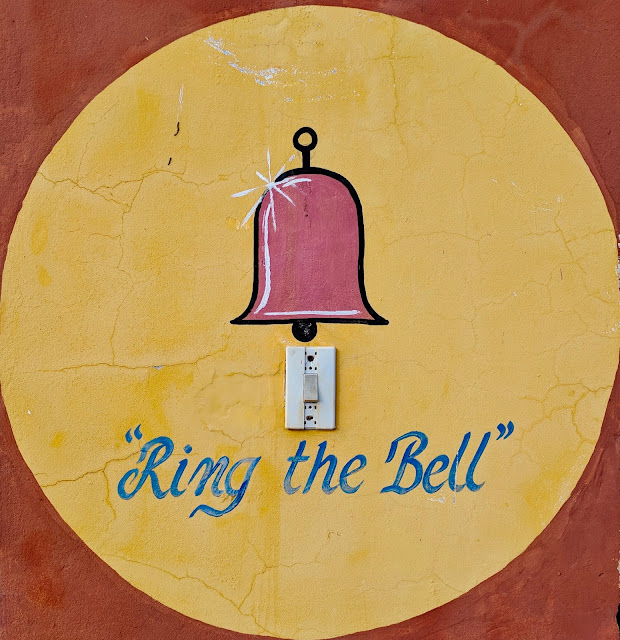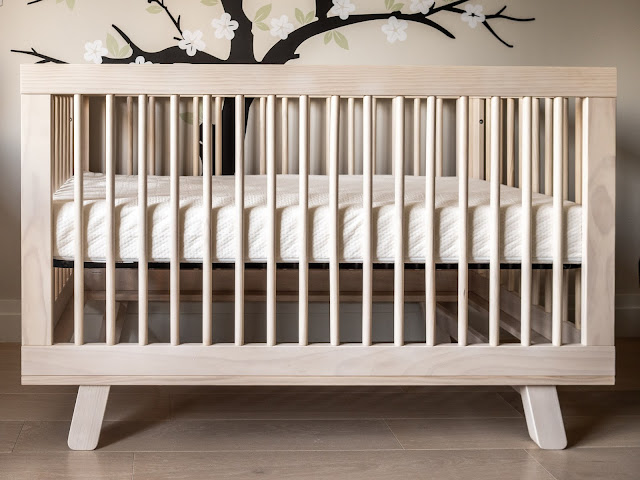Make / Do - Podcast Episode 37
Audio Transcript:
Welcome to episode 37 of The English Sessions. The verbs: MAKE / DO. I am your host and English teacher, Mike Butler. These podcasts can help you improve your English! Together, we will talk about grammar… pronunciation… structure... and have some fun too. Remember to visit my website, www.englishsessionswithmike.com to contact me for private lessons, and for more content.
You can also read the transcript of this audio on the website as you listen to this episode.
Listen for these words today:
Perform - Synonyms for perform are: carry out; accomplish; fulfill. ‘Perform’ is an important verb in English. Yes, sometimes we use ‘perform’ in English to talk about actors on a stage, in a play. Actors perform for an audience. They give performances. But, it is important to remember that the main definition of ‘perform’ is just: to carry out, accomplish, or fulfill. Other synonyms include: to complete; to achieve.
Ring a Bell - “Ring a bell” is another way to say “it seems familiar”. If something is familiar to you, it is something that ‘rings a bell’ inside your brain. Often, ‘ring a bell’ is used when you are trying to remember something that is far back in your mind. For example, “Hmmm, the name Paul Rudd rings a bell, but I can’t remember what he is famous for”. The name is familiar to you, but it is not a clear memory in your mind. 
Curtains - curtains cover windows to provide privacy. I will have a picture of curtains on the website.
Crib - a ‘crib’ is a bed made specifically for a baby. 
_____
Before we begin our episode, I must make an announcement. I have good news. Get the Word! is now officially a separate podcast. Get the Word! is for advanced learners and native English speakers who love etymology, the history and origin of words. You can find Get the Word! on Apple Podcast, Spotify, and many other podcast players, just like The English Sessions. Thank you all for your support, loyal listeners.
Today’s topic is important for many learners. Why? Because there are many languages that have one verb that translates to both the verbs ‘make’ and ‘do’ in English. For example, the second language that I am learning, Spanish, has ‘hacer’. The verb ‘hacer’ translates to both make AND do. As my loyal listeners know, I have many students in Brazil. I learned that the Portuguese verb ‘fazer’ translates to both make AND do. This is the same for other Romance languages like Italian and French, and for other languages like Polish, which I’ve learned from my Polish students.
Here is the problem, though: Yes, sometimes ‘make’ and ‘do’ have similar meanings, but sometimes they have very different meanings. You can confuse someone if you use the wrong one. This is why it’s important to know the differences.
I will start with two examples.
The first example is when ‘make’ and ‘do’ can have a very similar meaning. Sometimes my students say, “Mike, I did a mistake”. That’s fine. I understand, but native English speakers say ‘I made a mistake’ much more often. I understand what my student is saying because ‘make a mistake’ and ‘do a mistake’ have the same meaning, more or less.
Now, my second example is of when ‘make’ and ‘do’ can have different meanings. Sometimes, my students say, “Mike, I will make my homework”. Unfortunately, that’s a little confusing. Yes, I understand what my student means, because I’m an English teacher. However, it is much better to say, “I will do my homework”. Students do homework.
So why do ‘make a mistake’ and ‘do a mistake’ have more or less the SAME meaning but ‘do homework’ and ‘make homework’ have DIFFERENT meanings? Well, there are a few reasons.
The first reason I tell my students is this: there are many synonyms for both words. ‘Synonyms’ are words that have the same or similar meanings. Let’s use the example of ‘do homework’. Remember, students ‘do homework’. “I will do my homework” is what a native English speaker says. A synonym for ‘do homework’ is just ‘complete homework’. You will complete the homework assignment. You will perform this action. However, there is someone else who will ‘make’ the homework. A teacher makes the homework assignment. In other words, the teacher ‘creates’ the homework assignment. The teacher first creates / makes the homework and then the student completes / does the homework.
So:
MAKE is sometimes a synonym for CREATE
DO is sometimes a synonym for COMPLETE
The other reason is about your object. What comes after the verb ‘make’ or ‘do’?
Typically, what comes after ‘do’ is an activity, an action. Do your work. Do the driving. Don’t worry, I will do the driving. You can relax. I will do the driving. I will do this activity, this action. These sentences are correct. They are common. In English, students ‘do’ their homework because they are completing the assignment from their teacher. Think of it this way, you can say, “Teacher, I will complete the homework assignment that you created for me”. Perhaps this confuses learners because, according to educator Jakub Marian:
“…the most direct translation of “homework” into other languages often refers to the sheets of paper on which the assignments are written, hence it would make sense to “make it”.
Does this ring a bell? If you think hard about your own language, does this difference exist that Jakub Marian writes about?
In English, ‘make’ often comes before an object that you can create, not the action itself. The teacher creates the homework assignment, the student completes the homework assignment. We make dinner. We created the dinner with ingredients from our kitchen. Perhaps you made dinner, but you did the cooking. ‘Cooking’ is the action; ‘dinner’ is an object that you created. We make dinner; we make cheese from milk; one time I made curtains for my windows using a sewing machine. We can see and touch all of these objects. We can see and touch cheese, our dinner, my curtains.
Sometimes learning a language is a great opportunity to shift the way you think. This leads to my final reason for the confusion over ‘make’ and ‘do’. Often, my adult learners are just thinking too much about it. Sometimes we use ‘make’ in a sentence and it has nothing to do with creating something that we can see and touch. “Make a mistake” is a perfect example. Another synonym for ‘make’ is ‘cause’. To cause something to happen. There are some definitions that are the same for ‘make’ and ‘do’, including ‘to perform an action’. My advice is to be careful in translation and stop thinking so much about if it makes sense in your language. Sometimes we can’t make sense of a use of a word. Just listen carefully to what native English speakers are saying.
After the break, I will give more examples of ‘make’ and ‘do’ using many of the definitions of each verb from the dictionary. Stay with us.
— Break —
Before I create more examples using ‘make’ and ‘do’, I want to give one more piece of advice. When you are not sure of which verb to use, ‘make’ or ‘do’, you are safer using ‘do’. According to Google NGram, ‘do’ is used 3 times as much as ‘make’ in English. ‘Do’ is used for so many things! If someone can’t remember what an action is called, they just replace that action with ‘do’! It’s so common to do this!
I am going to give 10 examples for ‘make’ and then 10 examples for ‘do’. I will also give synonyms for each example (other verbs that you can use instead of ‘make’ and ‘do’). Don’t worry if you don’t know some of the synonyms. At the very least, you will now know that they are synonyms of ‘make’ or ‘do’.
MAKE:
1. I will make a crib for my baby. Make a crib. I will create a crib for my baby. He needs a crib.
2. Do you want tea? I can make us a cup of tea. Make a cup of tea. I will prepare a cup of tea.
3. The rain made my grass wet. The rain made my grass wet. It rained. Now my grass is wet. The rain caused wet grass. It made my grass wet. It caused wet grass.
4. John was made captain of the football team. He was made captain. In other words, someone appointed John to be captain. Someone designated him as captain. He was made captain.
5. Eww, Sarah made me eat worms!! Yuck. She forced me to eat worms. She compelled me to eat worms. She made me eat worms!
6. Bill and Sam are dating. They make a cute couple. They make a cute couple. They constitute a good couple. They form a good couple. They make a cute couple.
7. Peter made a lot of money yesterday. He gained a lot of money. He earned a lot of money. He made money.
8. Oh no! I missed my bus! I’m not going to make it on time to my appointment! I’m not going to make it! I’m not going to arrive on time.
9. Jill’s rock band is great! I hope they make it big! I hope they succeed. I hope they become successful. I hope they make it big!
10. Did you make your bed? Did you arrange your bedclothes on your bed in a tidy way? Did you make your bed yet today, young man?!
Are you ready to move on to ten different examples of ‘DO’? No? Ok, then go back and listen to my examples of ‘make’ again. Now are you ready? Okay, then let’s go!
1. What can I do for you? A very common question, right? What can I do for you? What action may I perform in order to benefit you? What can I do for you? The storeowner said, “Hello, what can I do for you?”
2. What do you do for a living? Another very common question. What do you do for a living? What is your work? What work do you complete for money?
3. How are you doing? SO common. How are you doing? In other words: How are you? How are you doing? ‘How are you doing’ is another way of asking ‘how are you’?
4. I will be done soon. You are being impatient. Don’t worry. I will be done soon. I will finish soon.
5. The school did a lot of harm to the students. The school did a lot of harm to the students. The bad school resulted in harm. It is the result.
6. Mom, I need some money for lunch. $10 will do. $10 will be enough. $10 will be suitable or acceptable. It will do. $10 will do, Mom.
7. Hey, punk, you’re done for! You’re dead! I’m going to kill you! You’re done! You’re done for!
8. Did you do the laundry yet? I have no clean clothes! Did you do the laundry? Did you wash the clothing that was dirty? Did you wash… clean… do the laundry? Do the laundry.
9. The Hays Community Theater is doing Little Shop of Horrors this month! I’m excited. The theater is doing this play. The theater is performing this play. The theater is doing the play.
10. I did ten years as a traveling nurse. I did ten years. I spent time in one profession or job for 10 years. I was a nurse for 10 years. I did ten years as a nurse.
Of course, don’t forget, ‘do’ has a very important function as the verb we use to form questions and to form negative sentences.
As you can see, there is much more to ‘make’ and ‘do’ than just ‘make homework/do homework’ = ‘create homework / complete homework’. There are many uses and many many synonyms for these two verbs. Practice saying these sentences out loud. Do they sound natural to you? Does it change what you thought was correct? Will you need to change what you have become comfortable saying?
BLOG COMMENTS: Before I go, I want to thank an anonymous individual who left a comment on the website. It’s in Spanish, by the way. Me encantó el podcast, estoy aprendiendo inglés y pude entender todas las palabras en el relato con claridad... gracias Mike.
Thank you Anonymous. I appreciate the support. Once, again, to all my advanced listeners, use your favorite podcast player and find Get the Word! with Mike Butler. I hope you all enjoy it.
Make sure to subscribe to this podcast so you won’t miss an episode. Visit www.englishsessionswithmike.com for more content. Please rate and review The English Sessions and Get the Word on Apple Podcasts, Spotify, or wherever you get your podcasts. Leave me a message and I will put it on the podcast! Leave me a message at www.englishsessionswithmike.com. Until next time, this is Mike signing off.
Shout outs to Jakub Marian / Hays Community Theater
Attribution:
https://jakubmarian.com/make-homework-vs-do-homework-in-english/
* https://books.google.com/ngrams/graph?content=make%2C+do&year_start=1800&year_end=2019&corpus=26&smoothing=3&direct_url=t1%3B%2Cmake%3B%2Cc0%3B.t1%3B%2Cdo%3B%2Cc0#t1%3B%2Cmake%3B%2Cc0%3B.t1%3B%2Cdo%3B%2Cc0



Comments
Post a Comment
Please be nice! Do you have any questions? Anything you want me to discuss on the podcast? Leave a message!